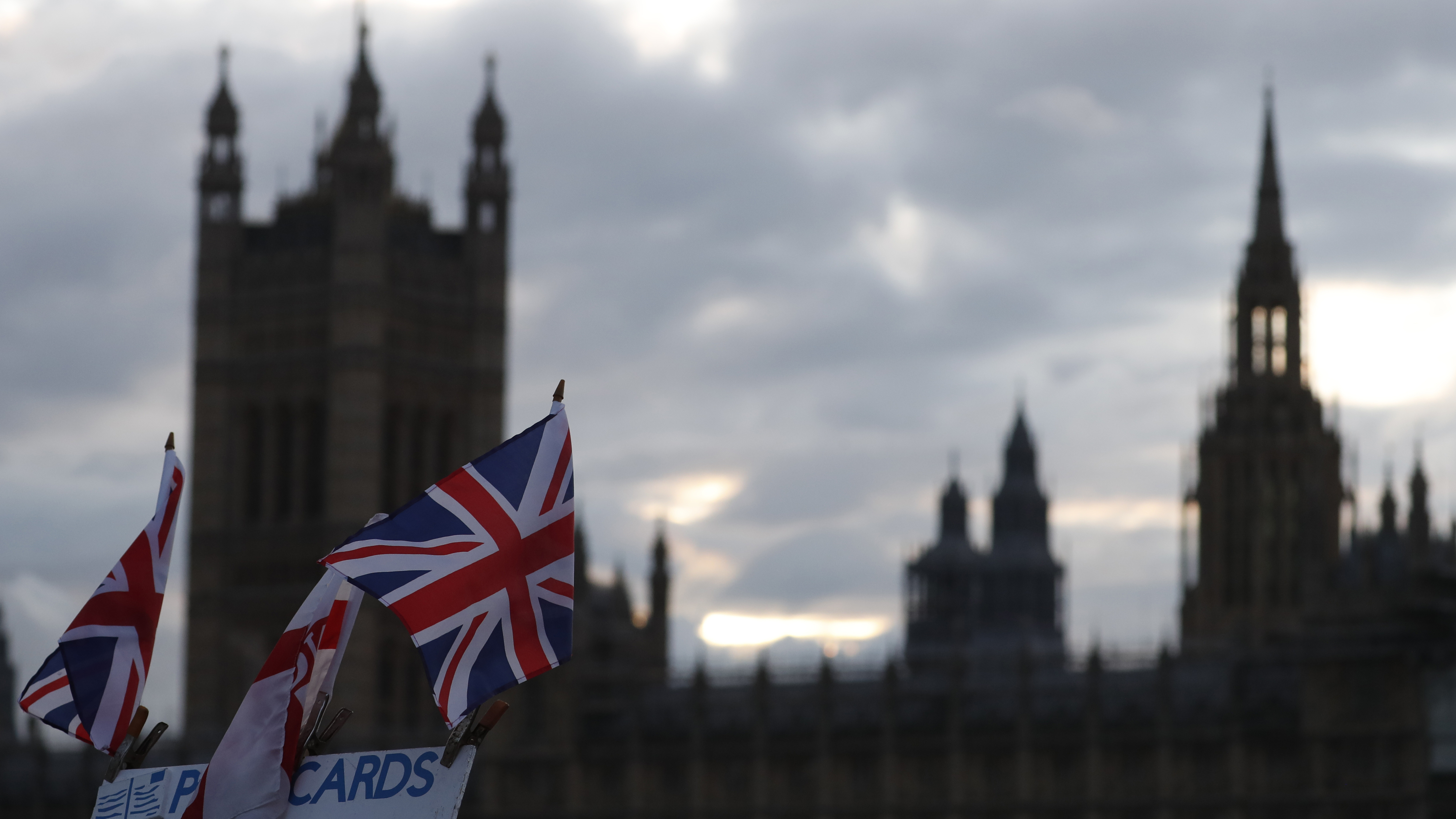
Editor's note: Tom Fowdy is a British political and international relations analyst and a graduate of Durham and Oxford universities. He writes on topics pertaining to China, the DPRK, Britain and the U.S. The article reflects the author's opinions, and not necessarily the views of CGTN.
Tuesday evening saw U.S Secretary of State Mike Pompeo unleash a scathing statement setting out that America "stands with the United Kingdom" against China's "coercion." In the document, increasingly characterized by militant Cold War style rhetoric, Washington pledged to support the UK and offered to build "critical national infrastructure" in the country, dismissing Huawei as nothing but an arm of China's "surveillance state." The comments come amid an increasingly uncertain relationship between London and Beijing whereby under pressure from the U.S., right wing MPs in the Conservative Party and the media, Boris Johnson is being forced to recalibrate his relationship with China.
In the House of Commons on Wednesday, the prime minister described himself as a "sinophilea" and insisted that although there may be disagreements with China on given issues, he urged that: "we should continue to work with this great and rising power." The comments make sense in context, given that Boris had expressed interest in the Belt and Road Initiative (BRI) on days of attaining office, had resisted American pressure on Huawei initially and as late as February held a publicized phone call with Xi Jinping which pledged to strengthen economic ties with China. It is quite obvious the prime minister is not so much anti-China himself, as it is those operating around him.
However, the environment of course has changed. The government's disastrous handling of the COVID-19 pandemic which includes marked failures on preparation, a delayed lockdown, scandals in care-homes and more have seen Britain ascend to the fourth highest number of cases in the world. And a number of deaths which as testified today could have been halved if the country acted sooner. This environment has led to the ascension of a "China blame game" politics within the governing party, whom already unhappy with the prime minister's Beijing friendly position, have sought to overturn the status quo. Increased aggression by Washington towards China has also strained Downing Streets position of delicate balance.
Still, the point needs to be made clear that a path of declining relations and confrontation with Beijing does not remain in Britain's national interest. The United Kingdom is in a very fragile diplomatic and economic position after burning its bridges with the European Union. To do so with China, one the country's largest export markets and sources of foreign investment would be disastrous. Things are already looking bleak, a forecast by the Organization for Economic Cooperation and Development (OECD) projects that Britain's GDP is set to decline more than any other country in the developed world, facing a contraction of 11.5 percent.

A Huawei product stands at an EE telecommunications shop in central London, April 29, 2019. /VCG
A Huawei product stands at an EE telecommunications shop in central London, April 29, 2019. /VCG
This above average contraction is a product of the government's mistakes concerning the virus, which has prolonged the lockdown situation, as well as the fact Britain's economy was already in poor shape owing to Brexit uncertainty and was prior to the pandemic projected at just 1.1 percent for the year. Costs of living have persistently outweighed wage rises, which has also suppressed consumption and even prior to the virus seen many major retailers and high street stores throughout the country struggle and go out of business. Britain's economy is in deep trouble and does not have the same capacity as big markets such as the United States or China to pursue a swift rebound.
Despite this dire economic outlook, those who wish to burn bridges with Beijing evidently risk making a big situation worse and want to slice Britain off from of the key players in the global economy. Driven by ideology, imperial nostalgia and Anglophone exceptionalism (the same factors which created Brexit), those making this push seem to lack realism and a grounded perspective concerning what Britain's practical interests are. Ties with China benefit Britain. Yet those who are militantly attacking it want to paint everything as a zero-sum, moralistic game. This is not tenable.
In this case, the British government have to push back against not only the critics at home, but Washington as well. Pompeo's statement fails to account for the fact that America itself has made numerous coercive threats to the UK over Huawei and is forcing Britain to reduce its food safety and quality standards in the pursuit of a trade deal. The U.S. cannot satisfy the UK's infrastructure needs given that the it does not have 5G technology nor a high-speed rail system of its own. These are false promises form Pompeo. As Vodafone set out in the Financial Times, the removal of Huawei will not only cost the country billions, but set back its 5G ambitions by years.
Therefore, Britain's policy must be driven by pragmatism and realism rather than dogmatism. To go on the offensive against Beijing would be a strategic blunder which would see Britain having simultaneously alienated two of the world's largest economic blocs, during a time of severe economic decline, and left Washington as the only option. Policymakers in the United Kingdom must astutely recognize that, despite areas of disagreement and even dispute, China will always be a significant partner for the UK and that there is more to gain, than to lose, from this relationship.
(If you want to contribute and have specific expertise, please contact us at opinions@cgtn.com.)